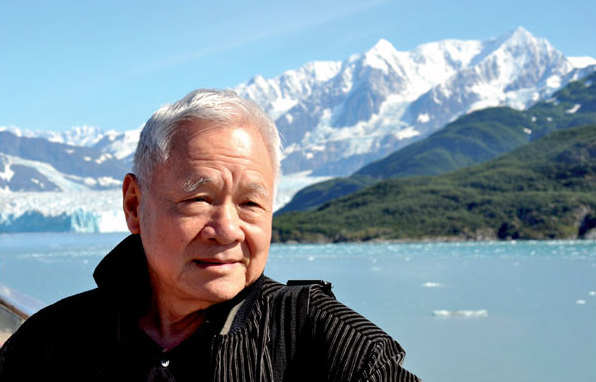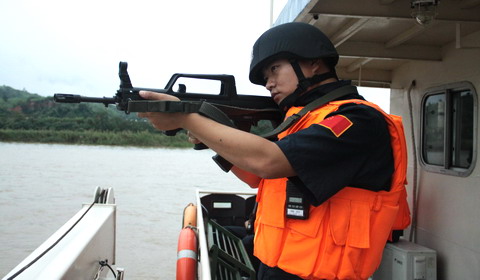Life in poetry
Updated: 2013-12-17 07:35
By Mei Jia (China Daily USA)
|
||||||||
Celebrated poet Ya Hsien has lived a colorful life marked by the tumultuous events of the past century. But it is his idyllic childhood in North China that provides the inspiration for his work. Mei Jia reports.
When a 17-year-old Ya Hsien waved goodbye to his mother in his hometown of Nanyang, Henan province, to join the Kuomintang army heading to Taiwan in 1949, he didn't expect the departure would be the last time they saw each other. "I left as if I was going on a hike with my schoolmates, not knowing that I would be cut off from correspondence with the mainland and lose contact with my mother for decades," the poet says. "I was only able to return home some 42 years later. But when I returned, I found my hometown unfamiliar and my mother long passed away."
In the years of separation from home and family, writing poems offered him a way to express his nostalgia and remember his hometown. His most productive writing period in the 1950s and '60s earned him quite a reputation. Today he is hailed as a phenomenal poet who bridges the time between Ai Qing in the 1930s and '40s and the post-1970s period of Bei Dao.
|
Poet Ya Hsien's writing career has spanned for about six decades, and he says the best way to refine poetry is to refine the poet's mind and behavior. Provided to China Daily |
He was recently awarded the Zhongkun International Poetry Prize 2013 from Peking University Institute of Poetry Studies. The biannual prize recognizes the oeuvre of both a Chinese and a foreign poet with 80,000 yuan ($13,100). Previous winners include Zhai Yongming, Bei Dao, Syrian Adonis and Japan's Shuntaro Tanikawa.
Sitting in a cafe at Peking University, the birthplace of contemporary Chinese poetry, or New Poetry as it is also called, the 81-year-old poet becomes sentimental recalling his homecoming after many years only to find his mother had died.
"That is the biggest pain in my life," he says, struggling to maintain his usual gentle calm.
He is not a prolific poet, but then neither was Walt Whitman (1819-92), who spent his life polishing Leaves of Grass, Ya Hsien says.
Hong Zicheng, a professor with Peking University, believes Ya excels in quality, not quantity.
Hong says all of Ya Hsien's 90-odd poems are in a sense, different versions of his most important work Abyss (the poem is available in English in a translation by John J. S. Balcom).
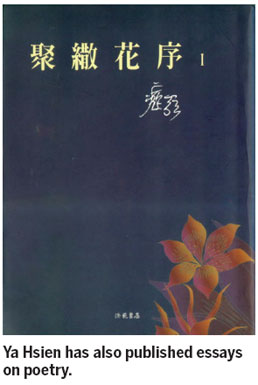
"With childhood memories of living in the North China countryside his major source of material, Ya Hsien successfully infuses both political and daily life within the spectrum of history, giving them significance and strength," Hong says.
"He is concerned about people at the bottom, and he refreshes contemporary Chinese language with his works."
In New Perspectives on Contemporary Chinese Poetry, edited by Christopher Lupke, Steven Riep dedicates one chapter to Ya Hsien's poetry, and points out that the poet was "deeply involved in establishing a modernist aesthetic that basically ignored the (then Taiwan) government's cultural policy".
"Ya Hsien's masterful use of irony, his haunting imagery and his experiments with terminal and circular structures set him apart as an antiwar poet par excellence," Lupke writes in the commentary's introduction.
But to readers like Zhu Ling, a reporter with The Beijing Youth, Ya Hsien charms them with a true poet's character.
"People write poems, but they're not really poets. Though Ya Hsien has not created numerous poems, he is indeed a poet throughout his whole life," Zhu says.
Ya Hsien believes poets emerge when writing is fully respected and valued. He is the kind of writer that if he places a letter in the mailbox and then realizes there are two misplaced words, he will circle the box anxiously several times, trying to retrieve his letter and correct it.
Besides writing poems, Ya Hsien has been a successful drama actor and media editor in Taiwan.
"Whatever I do, I never betray the god of poetry," he says.
He calls himself a "poet in action", who scatters poetic romance into social life, manages magazines and newspapers with poetic aesthetics, and also scouts and cultivates a younger generation of poets.
Born Wang Qinglin to a rural family, Ya Hsien's earliest literary inspiration was the tiny moving "library" of children's books on an oxcart his father drove to spread knowledge among villages in Henan.
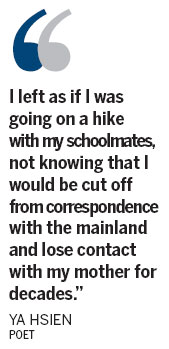
After arriving in Taiwan, he started publishing poems in 1953. He then joined two other renowned poets to create a nonprofit poetry magazine, The Epoch Poetry Quarterly, which is still published today and marks its 60th anniversary next year.
"In the 1950s, we published works of Chinese poets written in the 1930s, which was banned at that time by the Chiang government for ideological reasons. It's a miracle that the magazine survives to this day and has made itself a place in contemporary Taiwan," Ya Hsien says.
In the 1970s, Ya Hsien became involved in the management of a supplement of Taiwan newspaper United Daily News. Over more than 20 years he turned the supplement into an incubator of young writers like Xi Murong.
Ya has a master's degree from the University of Wisconsin, and has taken part in the prestigious International Writing Program at the University of Iowa. He now resides in Canada with his family.
He collects lots of old items as decorations in his house in Canada, such as abacuses, window frames from old houses, and different types of gongs, to remind himself of his hometown.
"Gongs remind me of the days I traveled with my father on the oxcart. Once we arrived at a village, I hammered the gong, and attracted the villagers to come to read," he says.
"I still hold that the best way to refine poetry is to refine the poet's mind and behavior," Ya Hsien says.
Contact the writer at meijia@chinadaily.com.cn
(China Daily USA 12/17/2013 page9)

 US first lady visits children in medical center
US first lady visits children in medical center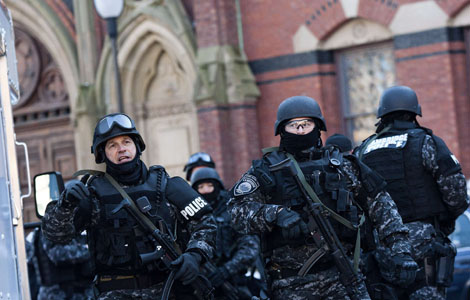
 Harvard reopens after bomb scare
Harvard reopens after bomb scare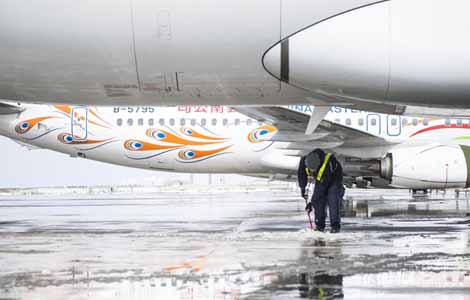
 Snowstorms cause chaos for travelers in Yunnan
Snowstorms cause chaos for travelers in Yunnan
 Kerry offers Hanoi aid in maritime dispute
Kerry offers Hanoi aid in maritime dispute
 Cuddly seal enjoys some me time
Cuddly seal enjoys some me time
 Shoppers dropping department stores
Shoppers dropping department stores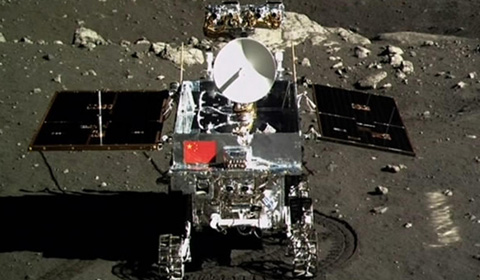
 Moon rover, lander photograph each other
Moon rover, lander photograph each other
 Snow hits SW China's Yunnan province
Snow hits SW China's Yunnan province
Most Viewed
Editor's Picks

|

|

|

|

|

|
Today's Top News
China hopes trade meeting with US fruitful
Japan to bolster
military build-up
Continuity in DPRK policies expected
China keen on natural gas
China outlines diplomatic priorities for 2014
China's US debt holdings pass $1.3 trillion
Clashes with US can be avoided: FM
Kerry offers Hanoi aid in dispute
US Weekly

|

|
